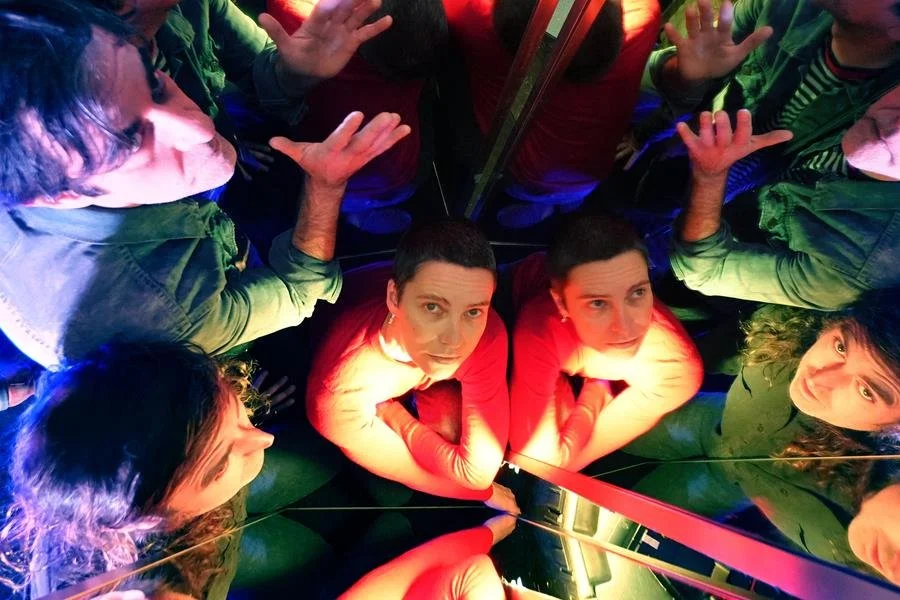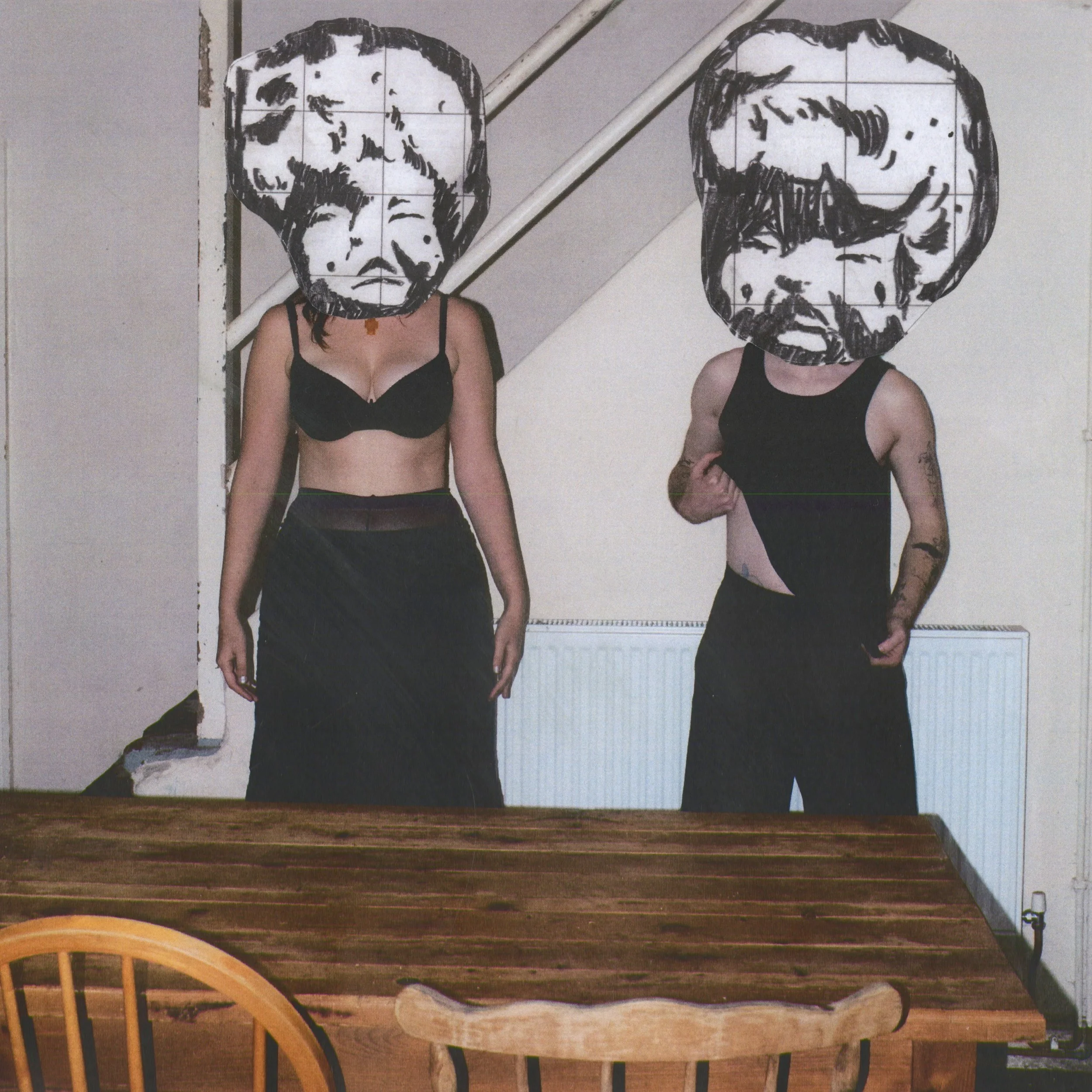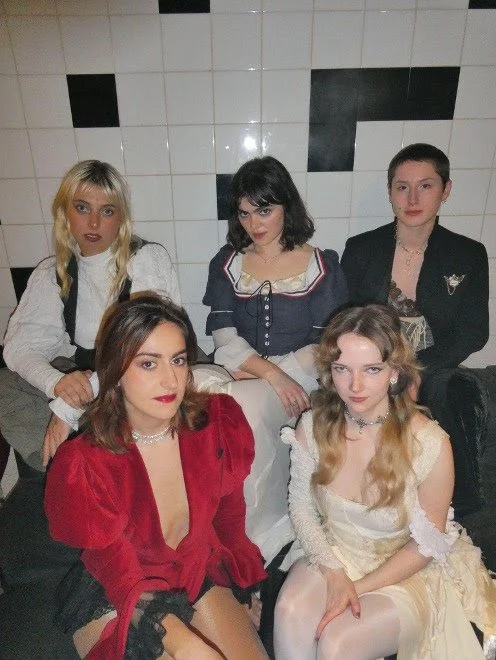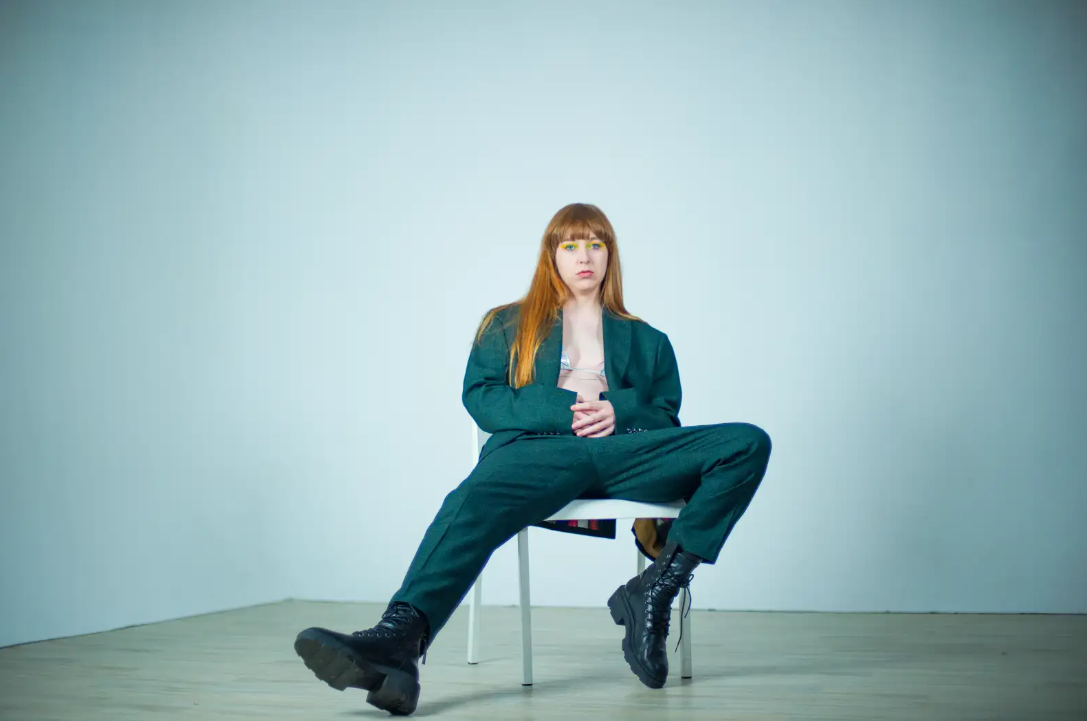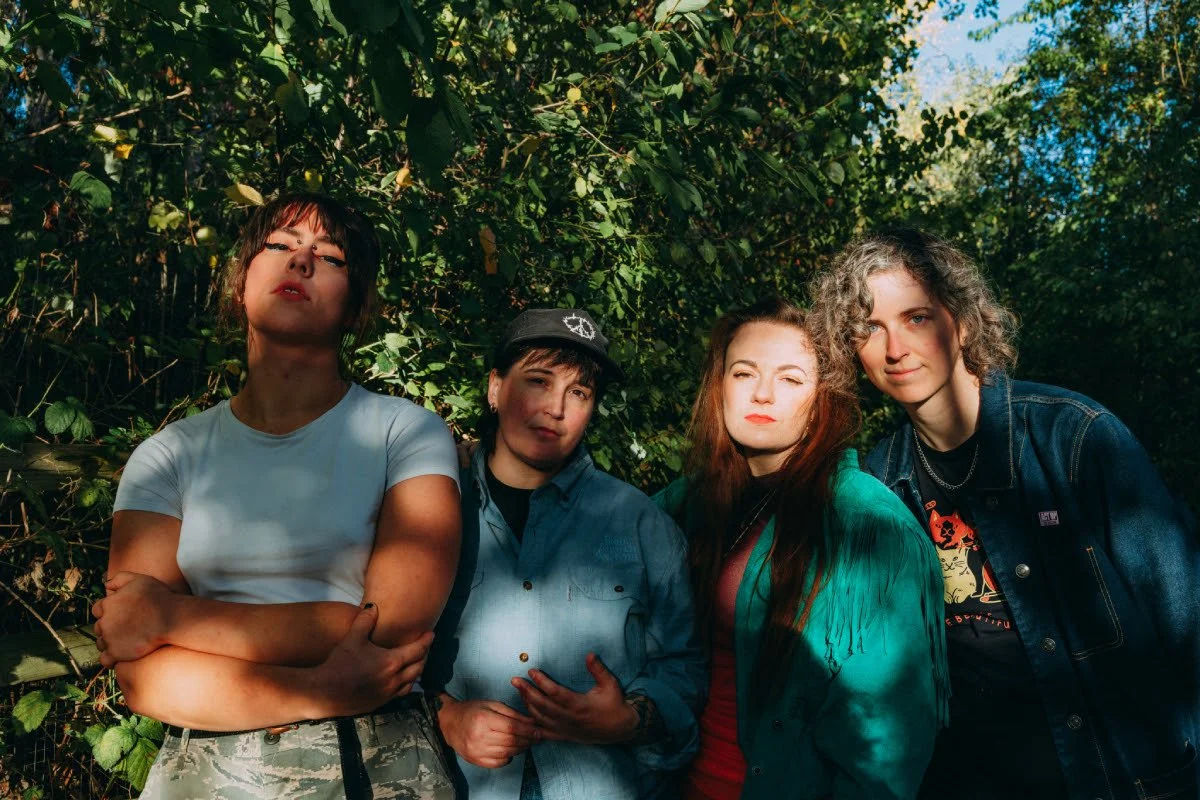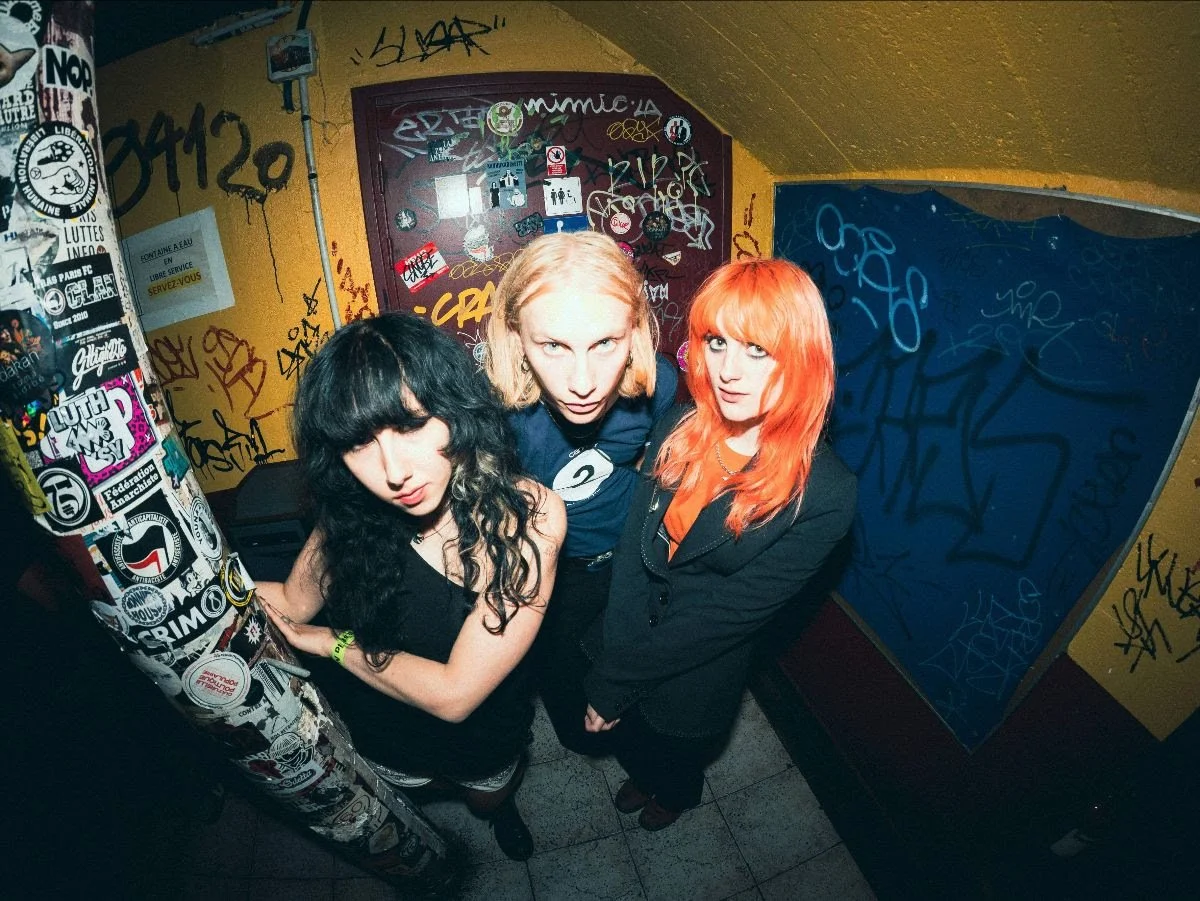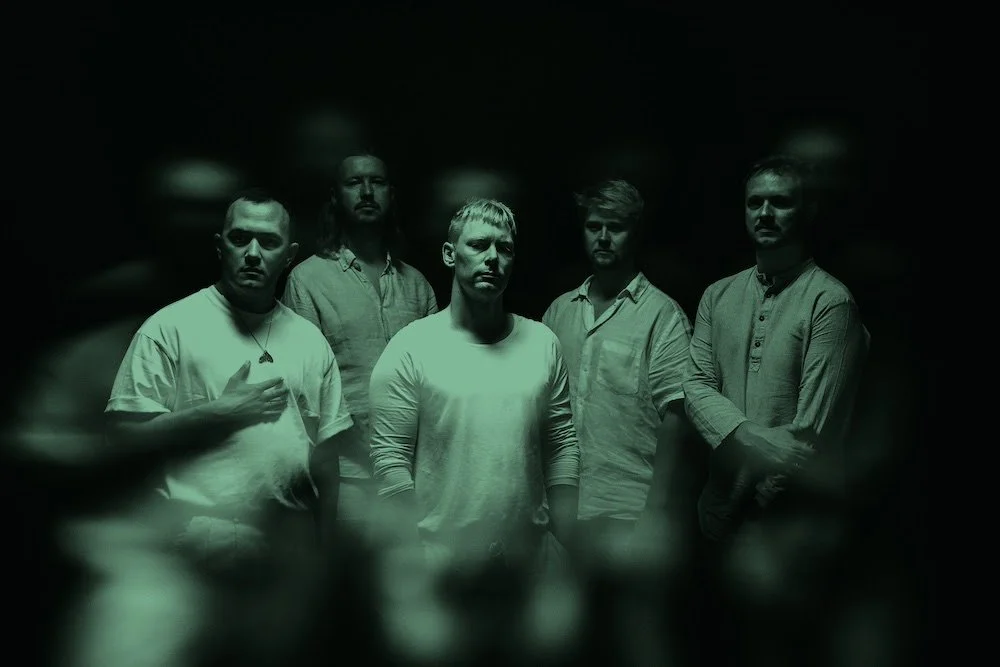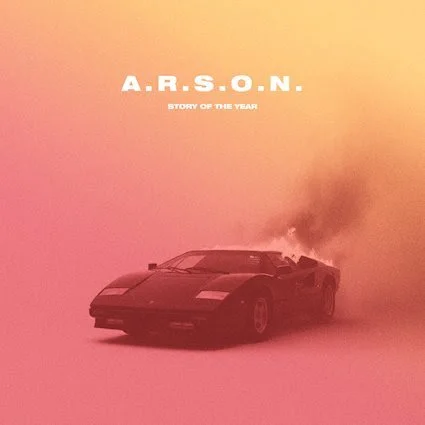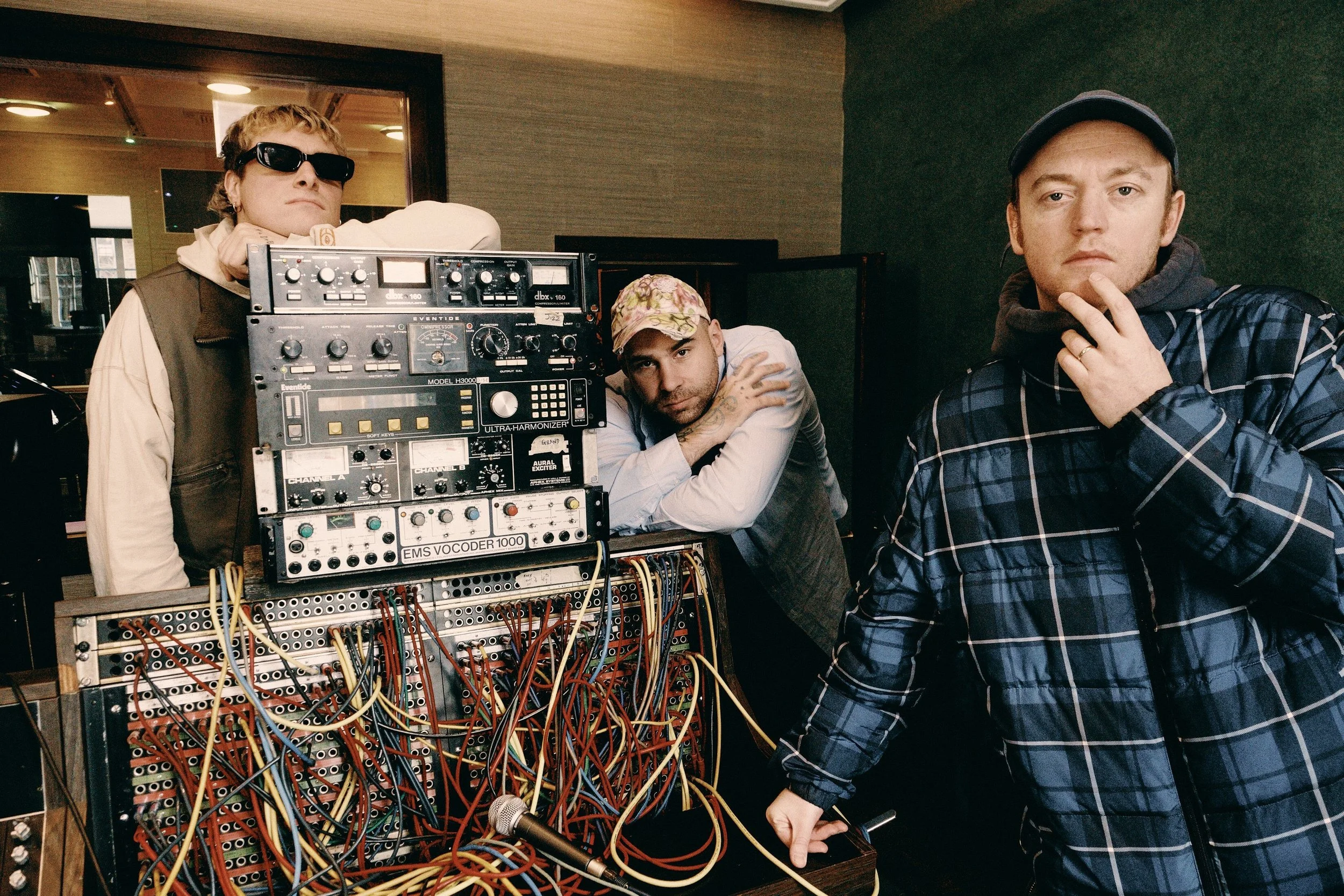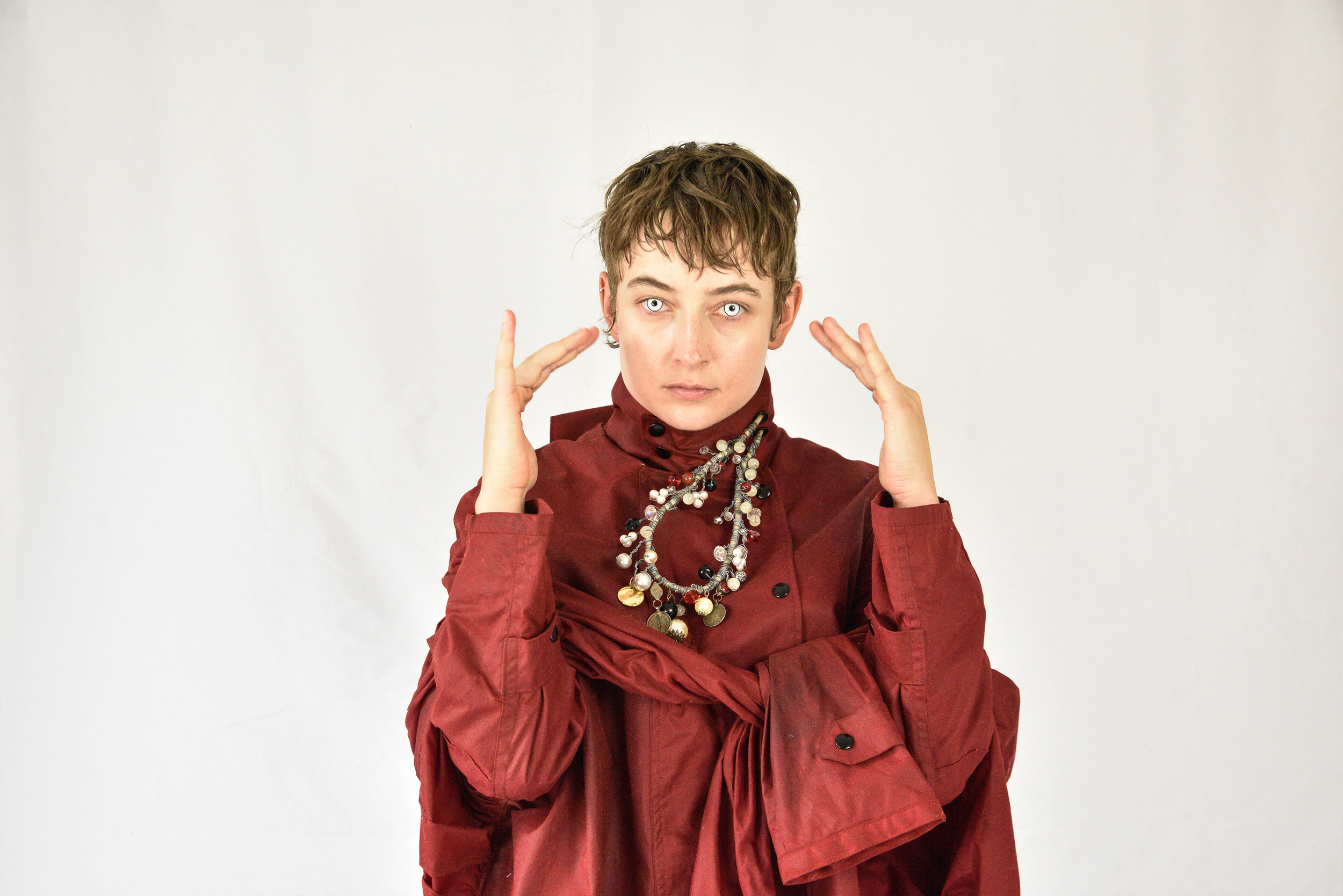Album Review: mui zyu - 'Rotten Bun for an Eggless Century'
A love letter to escapism, Mui Zyu’s debut LP is a stunning mix of sounds that takes you on a journey through fantasy, folklore, and the search of identity.
Over the last few years, Mui Zyu has crafted a reputation for her soundscapes and innate ability to take listeners on a voyage. Her previous work, particularly with Dama Scout, is a masterclass in ephemeral rhythm and musical idiosyncrasy as well as expertly showing how you can interweave discussions of identity, faith and the fantastical unknown into pop music. Melting together contemporary percussion and rhythm against classical instrumentation from her native Hong Kong, this album embodies Zyu’s own journey through self acceptance and discovery.
The opening and quasi-titular track, ‘Rotten Bun’, is a lovely piano ballad. The piano line is a cacophony which is in stark contrast to Zyu’s tranquil smooth vocals. As a track, it introduces the listener to the fantasy space Zyu has created and encourages you to find your bearings as we begin to explore this new world. Zyu explains that the image of the ‘rotten bun’ is in reference to the heart; the heart of the listener, the artist and the warrior about to go on the voyage:
“The ‘rotten bun’ refers to the rotting heart of the lonesome warrior. We have to overcome these initial fiends who mock, bully, hurt by becoming strong enough whereby we are unaffected by their ‘rotten tongues’”
The lyrics evoke images from fairytales and a lot of the metaphors and comparisons Zyu uses are lifted directly from traditional Chinese folklore. The instrumentation of the track builds into a whirlwind of different competing sounds and Zyu’s pleading vocals are contested by a pulsating bass, electric guitar and the same piano which has been there from the beginning. She beautifully features an erhu, which further pulls you into this fantastical, folklore ‘oldy-worldy’ realm with its solo lines. This constant building and ever evolving sound is reflected brilliantly in the conceptual visualiser video for the track which was released in November last year. As new instruments join the melody, different colours and shapes fill the screen and it is no time before what started as a peaceful black canvas is in disarray. After 5 long minutes of conflict and cacophony, Zyu implores with the line ‘Let them Rot Away’. We are left with the very same piano we started with followed by a staggering 10 seconds of complete silence. Completely overwhelmed by what we have listened to, its an incredible start to the album.
‘Ghost with a Peach Skin’, the lead single from the album, is melodically different entirely and is characterised by a distinctly insular warmth and lullaby sweetness. The accompanying music video is a scene of a birthday party where Zyu is given a dog/bear creature carved in wood. Hoping for a pet dog, we see her frustrated as she tries to interact with this object, struggling to take it out for walks and feeding it treats. Its only when it runs away that she truly realises her love for this ‘unlovable creature’ and in spite of his strange appearance and inability to behave how she wants him to, she begins to see it as the real pet she wanted all along. In contrast to ‘Rotten Bun’, this track is quietly upbeat; listening to it feels like hearing a catchy melody from inside someone else's headphones and you are pulled in in curiosity of how the song goes. Zyu’s tone is buttery smooth and almost sleepy which gives the track a wonderfully serene and calm feel. Her lyricism is another big step forward from ‘Rotten Egg’ and delves into themes of renewal and finding peace after shedding your skin. She explains the recurring image of peaches as a representation of leaving your former self behind and growing into your new peach skin. Reborn, you are soft, clean and refreshed.
Having come 180 degrees with the first two songs, Zyu ushers us into a technicolour synth-scape with ‘Hotel Mini Soap’ and ‘Mothers Tongue’. Both lean into a mechanical instrumentation that are reminiscent of childrens TV themes from the 80s and 90s. Muffled, invoking a sense of curiosity and wonder yet giving the sense that something isn’t quite as it seems, their topsy-turvy sound draws you in immediately. In ‘Hotel Mini Soap’, Zyu moves seamlessly through chromatic melodies which bizarrely feel both disjointed and perfectly coherent. The conflict between her vocal line and the unpredictable chord sequences is a point of intrigue rather than being jarring and invites you deeper into a strange and beautiful space. Zyu’s tone is very soothing and her lyrics are slurred, running into one another. You begin to feel a kind of intoxication and you too quickly begin to notice your thoughts blending into each other. ‘Mothers Tongue’ creates a similar sensation, but just amped up to 10. The opening instrumentation swells over and over and you are transported into a psychedelic fantasy. The intro, coming in at almost a minute long, has all the production value of a Vegas show and the minimalism and subtlety we have had so far gives way to the spectacle. Sonically, it's like Zyu has taken everything that makes ‘Hotel Mini Soap’ great and just zoomed out, allowing the sound to take up a greater space. Like before, each new vocal line marries the last, creating a homogenous and ever-flowing energy. Zyu is embracing the strength and assurance she found in ‘Ghost with A Peach Skin’ and slowly but surely the person she was at the start of the album and the person is being melted and moulded into something new.
‘Dusty’ strips things back with its simple yet stunning electric guitar instrumentation. Zyu’s vocals alongside it are impossibly smoother than they were before and are noticeably more emotional. She croons to the listener, discussing her fears, what things mean to her and her deeper emotions.
‘Take a sip, you'll know what you really mean to me. When I'm scared you always care and we laugh so hard that we could die holding hands. We could cry blood in our eyes, we can't breathe. We laugh so hard that we could die’
The lyrics have a real darkness to them. Zyu has gained a reputation for her poetic language, particularly so through her comparison to the intricacies of the body and anatomy to images of consumption and food. Her lyrics here speak to the way she really leans into the physicality of what she is feeling and while the pictures she paints can feel at times grotesque and mangled, it is through these that we really understand and get a grasp of what she is trying to convey. The chord progression mirrors the almost philosophical and existential anxiety of the lyrics, modulating between crushed minor chords and augmented majors. The guitar line is lilting and deeply tender and as such her playing feels like an extension of her artistry; in transitions between verses she continues to convey the pain and desperation without need for words. While she describes it as a love song, it feels like something far deeper and more nuanced.
‘Ho Bao Daan’ is an interlude and acts as a kind of buffer before we can jump back into deep emotions. The title comes from a Hong Kong recipe affectionately known as ‘Pocket Eggs’. A comforting breakfast plate, the dish brings up images of home, warmth and cosy familiarity. Against the sound of synths, piano and a gentle beat, a recording of a man speaking Cantonese which blends in and out like waves at the beach. Though you can’t really make out nor understand what he is saying, his tone sounds gentle and inviting. You needn’t know that this voice is that of her father narrating the family recipe to understand the familiarity and closeness Zyu feels towards the voice. The sound of static comes in quietly but quickly overpowers everything else till the track cuts out. A kind of palate cleanser, the instrumental allows for you to move towards the second half of the album with a clear mind.
Filled with distortion, white noise and static, ‘Demon 01’ throws you immediately back into the deep end. Zyu’s vocal line is echoed by synths, giving her tone an augmented and heightened quality. The rhythm section comes in and for a fleeting moment there is clarity and you can start to make out Zyu’s lyrics. It doesn’t last though and the fuzz makes its way back, stopping only for an arpeggio motif towards the end. ‘Dancing for Drinks’ continues the sense of disorientation and confusion with its incorporation of sound effects into the beat. The bassline which you almost don’t notice grows as the guitar line repeats itself and you start to hear garbled voices hidden within the melody. The lyrics are mostly unintelligible, inviting you to create your own meaning out of what you are hearing and listening between the lines to try and understand what is being conveyed. Perhaps another interlude, Zyu is pushing the boundaries of music and is encouraging us to question what a song really is.
The opening of ‘Talk to Death’ comes somewhat as a surprise as without warning nor introduction, Zyu’s voice comes straight in. In contrast to ‘Demon 01’, her vocal line is at the forefront of the track instead of hiding behind the instrumentals and her lyrics are far easier to hear and understand.
‘Talk to death, ask them where is best to put a lover's gift. I was never blessed, I walk with loss. Ask them what’s the cost of making planets cry. The planets always try.’
It's intriguing that Zyu refers to the character of death as something plural. Classical interpretations of death and its physical form have been an image of a lone figure, oftentimes a grim reaper or something similar. It makes sense though that Zyu’s version of death exists in multitudes, not just because of the way the afterlife and death is depicted in Chinese folklore but more so because of how fast and massive an entity it is. Rather than a scythe or sword, the hook here lies in the chorus synth section, characterised by a catchy riff that sounds like something out of Stranger Things. This track gives you the sense that we are in the home stretch of the album; the lyrics, instrumentation and ever-pounding beat pushes the song forwards and whilst the overall themes are that of death, you get the distinct feeling that Zyu has undergone a kind of growth already.
‘Paw Paw’ and ‘Eggless Century’ are the penultimate tracks and could not be more different. ‘Paw Paw’ is the textbook definition of a soundscape whilst ‘Eggless Century’ is perhaps the most ‘pop-esque’ number on the album. It’s so interesting therefore that they are placed one after the other, almost like Zyu is encouraging us to look at everything that links them together. ‘Paw Paw’, inspired by her grandparents, features the erhu we met earlier in the album. The droning quality of the track allows for the instrument to take on a completely new energy and despite being an instrument with rich history, it feels right at home with the more contemporary synths and electric guitar. The track is a reflection of Zyu forging her new identity; she brings together the sounds of her heritage and the stories of her history and melts in all which has come from her present and future. The ability for interpretation on this track feels infinite and with each listen you notice something different. ‘Eggless Century’ on the other hand, is far more upfront and you feel like you are able to resonate and understand Zyu’s sentiments immediately. With the background sound of a guzheng, Zyu still remains close to her roots but as the beat and melody line come in, you can sense a change in her mindset. This shift is reflected in her tone which at times sounds more open than it ever has done before and embodying a new depth that Zyu previously wasn’t able to access. Whilst the two tracks are sonically entirely different, they both demonstrate Zyu’s ability to weave together her identities as an artist.
To close the album, we have ‘Sore Bear’. We have come full circle and are reminded of the track which opened the album; similarly to ‘Rotten Bun’ there is a keyboard riff which loops endlessly and effortlessly sticks into your head. The track is noticeably without any percussion nor rhythm section, giving full reins to Zyu’s vocals. Whilst ‘Rotten Bun’ built towards a hodgepodge of different voices and sounds fighting for attention, the simplicity and minimalism of ‘Sore Bear’ implies that Zyu has gained an ability to tune out the white noise and focus on what is important.
A deep dive into who Mui Zyu is as an artist, this album encourages you to widen your view on what makes music special. She frames the album as a means to understand and forge her identity but more than that, it is a way we can understand and gain a better appreciation of what the future of music holds. A wonderful blend of different sounds that transcend geographical and cultural boundaries, Zyu transports us to a place where the language of folklore and fantasy can coexist with the mechanical and electronic. Its an exciting insight into what we can look forward to not just from Zyu and Dama Scout but from music more generally. As artists continue to enrich their sound and push listeners towards new things, the conversations we have about popular music grows more and more nuanced and insightful. If only a means to introduce you to beautiful folklore imagery and instruments from across the world, this album is a triumph.
Words by Kirsty-Ann Thomson

